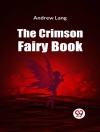The Complete Novels of Jane Austen & Brontë Sisters is a remarkable anthology that brings together the seminal works of these renowned authors, offering readers a rich tapestry of themes ranging from romantic idealism and societal class distinctions to the resilience and introspective journeys of strong, complex protagonists. This collection showcases a diversity of narrative styles where the eloquence of Regency romance seamlessly intertwines with the moody, Gothic allure of the Brontë sisters’ prose. Each novel stands as a testament to the literary movements of their time, capturing the intricate dynamics of 19th-century English society. The anthology highlights the profound contributions of Charlotte, Anne, and Emily Brontë, alongside Jane Austen, whose works together explore the intersection of personal and societal constraints. These authors, while working independently, collectively pioneered a transformative period in English literature, their narratives echoing the shifting paradigms of gender roles, personal agency, and social expectations. Their unique voices converge in this volume, enriching the reader’s experience through a multifaceted exploration of love, identity, and empowerment. This compendium is not only a literary treasure trove but also an educational cornerstone, providing readers with an invaluable opportunity to experience the breadth of early 19th-century literary innovation within a single collection. Encapsulating the dynamism of its contributing authors, the anthology invites both seasoned scholars and new readers to immerse themselves in the diverse perspectives and enduring themes that have captivated audiences for generations, fostering ongoing dialogues within literary landscapes.
Sobre o autor
Charlotte Brontë (1816–1855) was an English novelist and poet, renowned for her contribution to English literature during the nineteenth century. Born in Thornton, Yorkshire, Charlotte was the third of six children to Patrick Brontë, a clergyman, and his wife, Maria Branwell Brontë. After the death of their mother and two eldest siblings, Charlotte and her remaining sisters, Emily and Anne, turned to writing as a solace and a means of expression.
Charlotte’s most famous work, ‘Jane Eyre’ (1847), stands as a classic in literature, epitomizing the struggle against the constraints of social class and gender. It was originally published under the pseudonym Currer Bell, as the direct and passionate style was deemed unconventional for a female writer at the time. Other notable works include ‘Shirley’ (1849), a social commentary incorporating the industrial unrest of the period, and ‘Villette’ (1853), a reflection of her experiences in Brussels, exploring themes of isolation and the complexities of human psychology. Charlotte’s literary style is marked by realism, emotional intensity, and a strong sense of morality, often highlighting the position of women and the individual’s struggle for independence. Her works, which are included in ‘The Complete Novels of Jane Austen & Brontë Sisters’, have inspired countless adaptations, cementing her legacy as a pillar of Victorian literature (Gaskell, 1857; Gordon, 2015).












